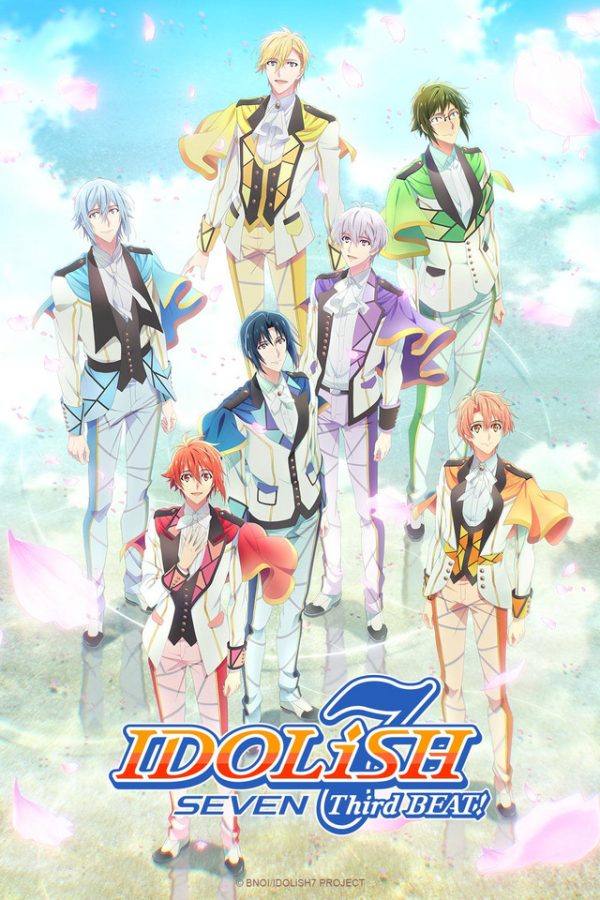Once there was a man who became a singer to look for his mom who vanished suddenly from his life. For years he couldn’t find her and in a last ditch effort tried to become a celebrity that people would recognize, hoping just hoping that one day his mom would see him and reach out to him. When people found out, women came forward claiming to be his mother. So many that he would give up on searching for her.
Idols are an interesting thing. They sing, act in movies and shows, host shows, and for many people become a comfort in their lives by providing a place to escape reality. It’s an entire industry in East Asia, but has been becoming more mainstream in the West with the rise of idol groups like BTS. However there’s a dark underbelly to the world of idols like everything else. Idols have restricted diets that lead to them passing out during events, they are unable to use public transportation without being harassed by fans, forced to live in apartments with cameras set up by their companies, and are in an environment that is down right toxic. In many ways, they are forced to sacrifice many things that we take for granted. Society has started to ignore much of what happens behind the scenes of the idol industry for the sake of entertainment without guilt. Many anime have a focus on the industry, only looking at the good parts, but that’s what makes the darker tone of “Idolish7” so special.
The popularity of fictional male idols started with a little dating game called “Uta No Prince-Sama” which quite literally translates to “The Princes of Music.” It followed a young aspiring composer as she meets idols in training that just so happen to fall in love with her. It featured amazing voice work and had many voice actors with very successful singing careers and even the lead vocalist of a popular band. It would later get anime adaptation which got rid of the criticism of the industry in the story, the games had a focus on how the industry forces people to reject parts of themselves, and would instead make one of the most campy shows I’ve ever seen. The anime would set the trend of the worship of the idol industry in anime for years to come.
At first, “Idolish7” seems very standard as it focuses on the seven members of the newly formed idol group Idolish7 all of which became idols. This is a standard start to idol anime but the show differentiates itself by having the characters not become idols just for the sake of making people happy. Some are selfish as they joined for revenge while others are trying to find ways to fix their broken families. In the show, there is a character’s story that disturbingly reminds me of the singer mentioned before. It starts to expand its cast of main characters to having 17 main characters, with viewers being able to relate to the struggle of at least one of them.
Having played the mobile rhythm visual novel “Idolish7” is adapting, it is a very good adaptation succeeding where many fail. It has solid animation and doesn’t require people to play the game to understand the plot or boil down characters to their most basic parts. Personally, the anime often gets me to react more than the game itself because I get to see what is going on instead of reading a book with voice acting. It doesn’t always do a great job as they had to cut out large parts of early days of one of the mentoring groups, Re:vale, but to the show’s credit does a better job at keeping the viewers attention during this arc so it doesn’t drag on.
This focus on the characters is one of the show’s strong points and weaknesses. The show is working to adapt an ongoing mobile game rich with characters who are very nuanced and feel human, but due to time constraints some of the characters, like ones that start off as antagonists in the game and become more likable in side stories in the game, don’t get much further characterization in the main anime. They attempted to resolve some of these issues in their YouTube Original Series “Idolish7: Vibrato” which made massive steps on characterizing many of theses characters, including showing what the largely silent member of rival group Trigger is thinking as he was one of the most underdeveloped characters in the main series.
The characters are also a blast to watch with very natural representation of different groups. Karou the manger of the rival group Trigger is transgender but it doesn’t use stereotypes when depicting her or even make a big deal about it making her depiction feel authentic. Tamaki, a member of Idolish7, is implied to be autistic due to his behaviors but instead chooses to not have him be a STEM focused character and use stereotypes that annoy me as someone diagnosed with autism. Instead, he has a passion for dance and has hyperfixations on small things like pudding while struggling with knowing how to react in tough moments. Tamaki is a character that I relate to a lot and that made me extremely happy.
Due to the story focusing on the behind the scenes of the entertainment industry, it raises some valid criticisms of the industry. While many aren’t explored as deeply as they were in the game, it gives the audiences something to think about. The most recent season has had a greater focus on what makes the corporate drama hard and has a plotline focusing on what makes being a woman in the entertainment industry difficult. This is shown in one of the main characters being forced to stop talking to a close male friend due to the negative impact it had on both of their careers. A large part of that dilemma stems from the fact that getting married or being in a relationship in the entertainment industry in East Asia can often kill a person’s career, which is a reason why it’s very common for even voice actors not to make their marriages public knowledge.
The show can be hard to watch at times, as some of the characters are implied to have been abused and the consequences of their childhood echo throughout the show with is handled well, and had many scenes that left me crying and I had to take a break for a couple weeks from the show multiple times because of how stressful it was.
These more serious topics caused the show to shift from a fairly light hearted comedy to a more consequential drama where there is attempted murder, and the transition of genres was not the smoothest for a few episodes, with one episode having extreme mood whiplash, however they would quickly find their footing and have some balance in later episodes.
Of course, it couldn’t be a idol anime without music, which is another highlight of the show. Like many idol anime, the music actually receives commercial release and gets actual albums which have a wide variety of genres. Some of these songs make it into the anime, but the anime opts to take a unique approach and instead don’t create a new song for every episode. Songs instead are played when they are performed in show and often serve as points of reflection for the main cast. With the voice actors in the show already having successful singing careers outside of the show, the music is often very good and their love of the franchise shines through, with one of the voice actor’s brother actually playing it at his wedding.
“Idolish7” is an oddball in the anime industry. It comes from a genre of anime often mocked for how campy it is, but for fans of idol anime it can get extremely dark. However the franchise has mustered enough of a fan base to get three seasons of anime, two collaborations with Lipton Tea, have 14 music videos on YouTube, got an award from Japan Travel Industry Association for encouraging tourism, and in March of this year won the Anime Fan Award for the second year in a row in the Tokyo Anime Award Festival in the category of Anime of the Year. The show is very unique and while that may hinder it in many ways, it is perhaps one of the best music tv shows I have ever seen.



